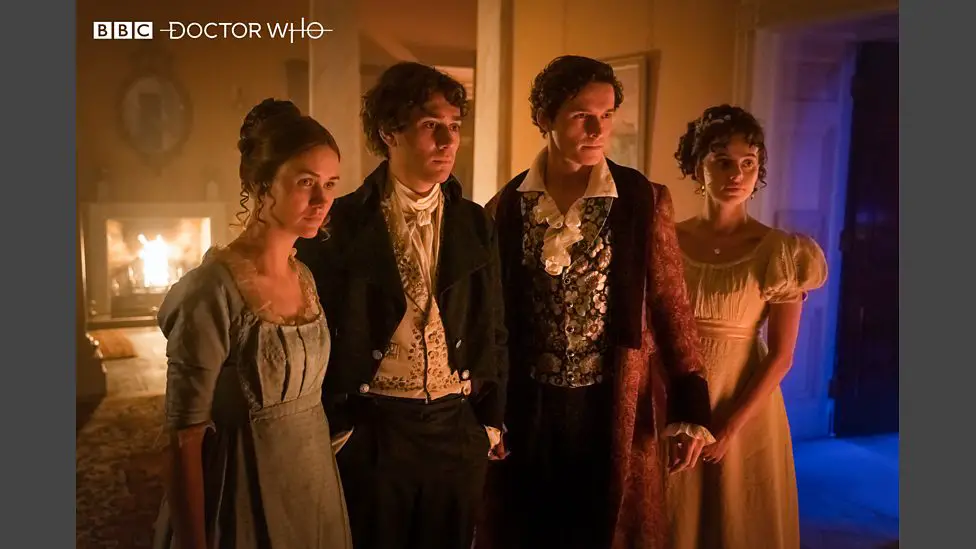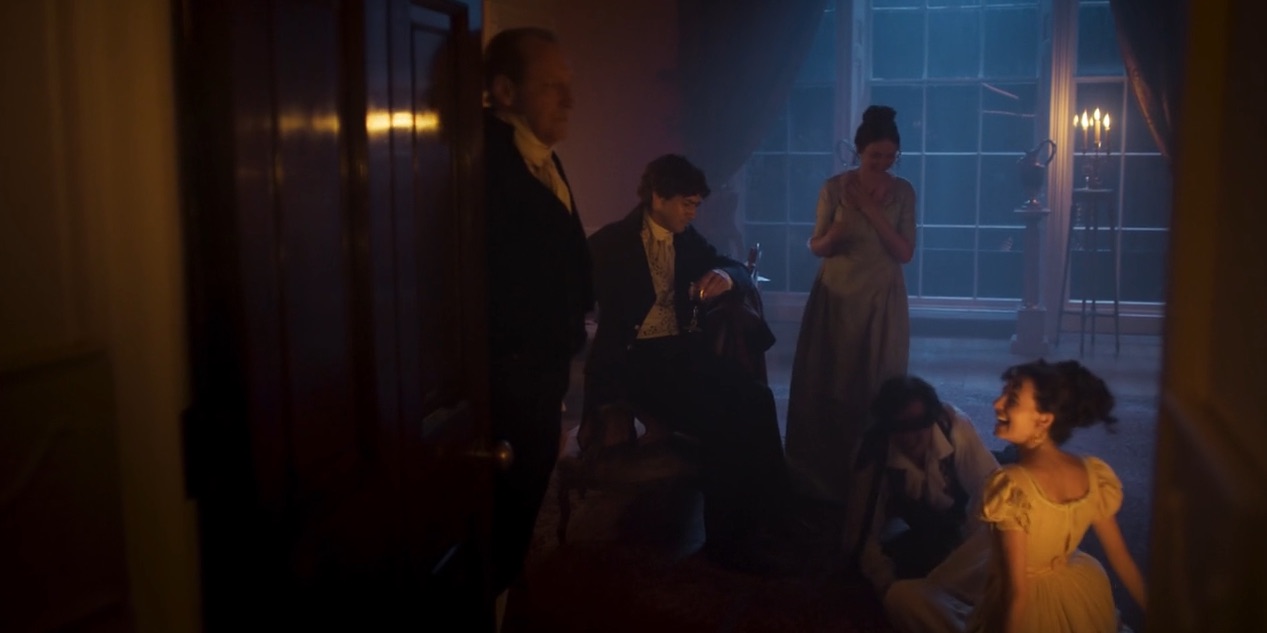; Date: Wed Feb 19 2020
Tags: Doctor Who »»»» Doctor Who Season 12 »»»»
In The Haunting of Villa Diodati, we were promised a rollicking ghost story when The Doctor visited with Mary Shelley and Doctor Polidori on the evening that both created the core of two significant horror genres - Frankenstein and Vampires. Instead we got a Base Under Siege story where some folks The Doctor said were significant historical figures were threatened with death, and therefore The Doctor got really uptight about preserving history. But The Doctor did not preserve history - probably.

As shown in The Haunting of Villa Diodati, Lord Byron had to escape England partly because of his divorce from his wife, and for other reasons. He therefore rented a villa on the shores of Lake Geneva, Switzerland, and gathered around him a group of friends. During the process he met the Shelley's who had rented a house nearby, and they frequently came to Lord Byron's rented villa.
As shown in the episode, June 1816 was especially cold and stormy. The Wikipedia page where I learned this summary doesn't connect this to 1816 being the famous year that didn't have a summer.
As shown in the episode, there was an evening in June 1816 where Lord Byron and his gang, including the Shelley's, were holed up in the villa. Bored, they challenged each other to write the most blood curdling horror stories.
Over the next three days, Mary Shelley produced a piece that was the seed of what became her book Frankenstein, and Dr. Polidori produced what was the seed of a book Vampyre. The Frankenstein book of course directly launched a zillion books and TV shows and movies related to the made-up-fictional legend of Frankenstein's Monster that Mary Shelley created. Polidori's book, Vampyre, was not directly responsible for the Vampire craze (that rests in the hands of another book, Dracula), but Vampyre is credited as being part of the inspiration for Dracula.
Therefore in the history of Literature, those three days were a critical time for the basis of many many many literary, audio, and video works which followed.
As we'll see - while The Doctor succeeded in keeping the historical figures alive, she did not succeed in ensuring they produced the literary works which was supposed to have been created during the night shown on our screens.
The threat presented in the episode
Out of the blue, The Doctor had this idea to visit Lord Byron's villa at that time. The idea spun to us and the Companions was to see great minds working on horror stories.

Instead they found a bunch of sexual hijinks, and worse that one of the participants was missing. Percey Shelley was absent from the scene, when he was supposed to be helping his (future) wife write Frankenstein.
It turns out that Percey Shelley wasn't in town with an assignation, as Lord Byron suggested, but had been waylaid by a CyberThingyMajiggy. The CyberThingy was keeping itself, and Percey Shelley, hidden so it would not be found by The Last Cyberman. Despite the efforts of the CyberThingy, The Last Cyberman showed up. Cue Capt. Jack's warning of a few episodes previous to not give The Last Cyberman what it wanted.
The Cyberman started killing people - and of course The Doctor was carrying a worry that all these historical figures were under threat. Not to mention the threat that her companions would be captured by the Cyberman and turned into Cybermen.
As a result of these worries, The Doctor relented and gave The Last Cyberman what it wanted. The glowy silvery CyberThing. That, despite Capt. Jack's urgent warning to not give it what it wanted.
The Doctor traded off keeping alive the key historical figures - Lord Byron, Percey Shelley, Mary Shelley, and Dr. Polidori. Her next step would have to be finding where the Last Cyberman went, and somehow stopping the CyberFolks from becoming a new threat to the universe.
If she hadn't relented, all those key historical figures would have died, which would have drastically changed history.
At least - this is what we're led to believe in the story.
BUT BUT BUT BUT BUT BUT ...
The key historical event DID NOT HAPPEN.
During that evening, the result of the battle with the Cyberman is that Mary Shelley did not write the seed of Frankenstein and Doctor Polidori did not write the seed of Vampyre.
That night was critical to the production of both works. It is those works that affected humanity, not the continued life of those specific people.
What I mean is .... On that evening Mary Shelley and Dr. Polidori were inspired to write short pieces that they later turned into books that later inspired other books and other works of fiction.
The historical event The Doctor needed to preserve was the writing of those books.
The Doctor preserved the existence of those people, but that does not guarantee that they then went ahead and wrote those books anyway. The creation of those ideas occurred in the context of that evening, from the mutual challenge to produce an ultra-scary story. Would Mary Shelley and Dr. Polidori have produced those stories on their own outside of that contest?
By rights that should mean the undesired changes to history occurred anyway, despite The Doctor's best effort to prevent that result.
The key to why the key historical event did not happen? The meddling of The Last Cyberman.











